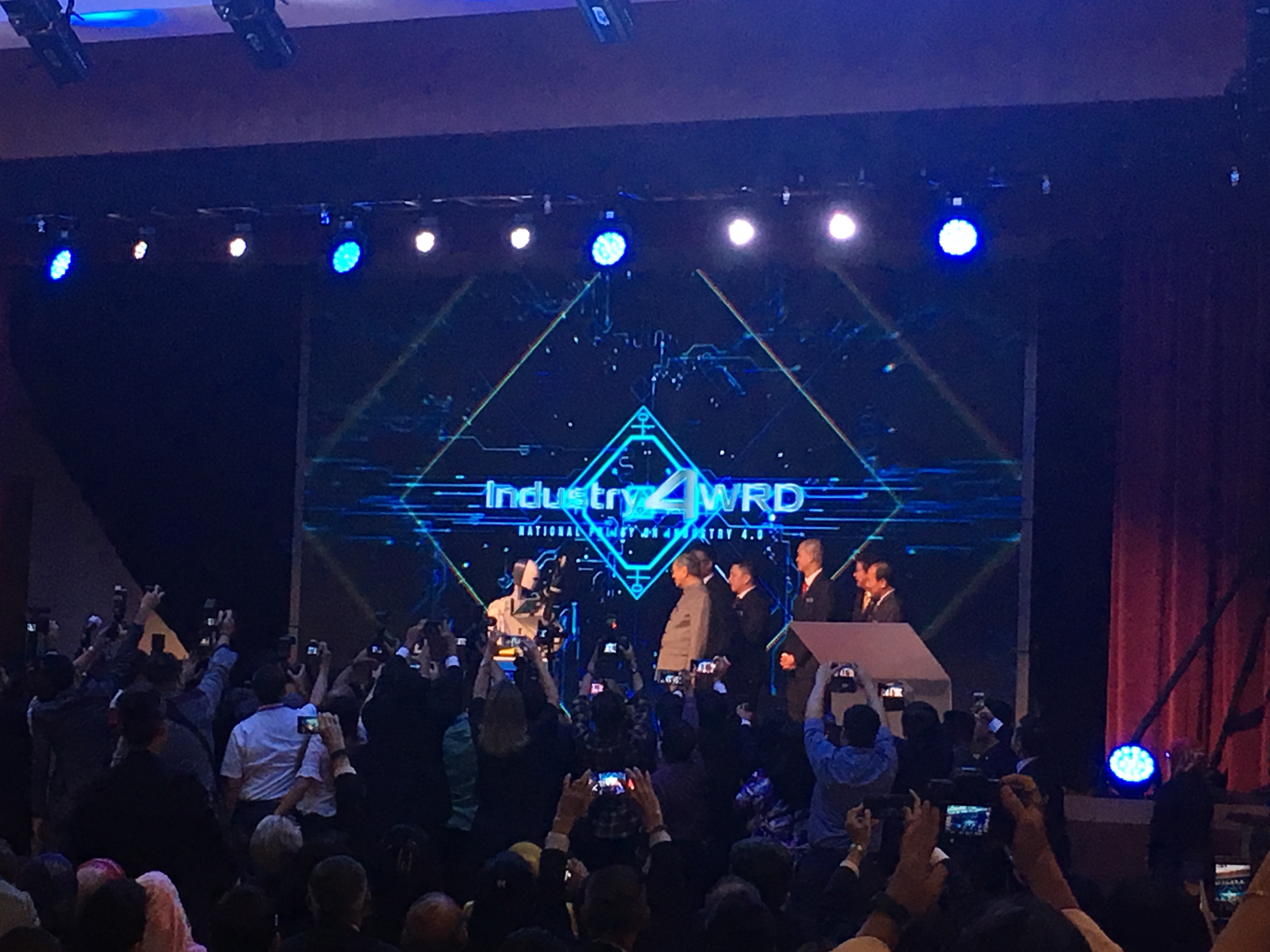(Caption for above: During the launch of the National Policy yesterday, when a robot handed over policy documents to Malaysia’s Prime Minister)
In this video, Tun M had talked about the readiness assessment programme, “to assist SMEs to measure their gaps and readiness, in order to guide their adoption of Industry 4.0 technologies.
“Ultimately, the possibility for driving Malaysia to become a strategic partner for smart manufacturing and related services in Asia Pacific, the primary destination for high-tech industry as well as a total solutions provider for advanced technologies.”
The first step forward for Industry4WRD, is this readiness assessment that Tun M speaks of, and currently the Industry 4.0 policy IS in an assessment phase, with implementation of Industry 4.0 technologies likely to start in 2019.
Why do I say this?
Well, here is the current scenario.
The owner of the newly launched national policy is MITI, the Ministry of International Trade and Industry.
MPC or the Malaysia Productivity Corporation under MITI will oversee in terms of funding, in terms of implementation and execution.
But there are also other agencies underneath MITI’s purview. One of them is MIMOS Berhad.
Thiagesh K Lingam, Director of Business Development and Commercialisation at MIMOS Semiconductor, explained, “All the other agencies like the technological agencies, will work with MPC to ensure implementation of funding is all done.”
He also shared that 400 companies will be implementing the new national Industry 4.0 policy saying that, “There is a selection criteria based on international standards, and the first criteria is assessment of the company on their level of maturity.”
“These assessments will be done within MITI agencies, be they tech-based companies or service-based companies,” he described.
The four agencies that will carry out these assessments have been identified as MPC, the Malaysia Automotive Institute (MAI), SIRIM and Universiti Teknologi Malaysia (UTM).
Thiagesh also pointed out, the start of implementation phase would be in 2019, and described, “Three hundred of these companies would be manufacturing–related companies, of any kind, while the remaining 100 countries are providing manufacturing-related services like logistics, warehousing and so on.”
Tun M had observed in his keynote that smart manufacturing enabled by Industry 4.0 policies like ours, will eventually lead to smart cities, smart grids, smart services and so on.








